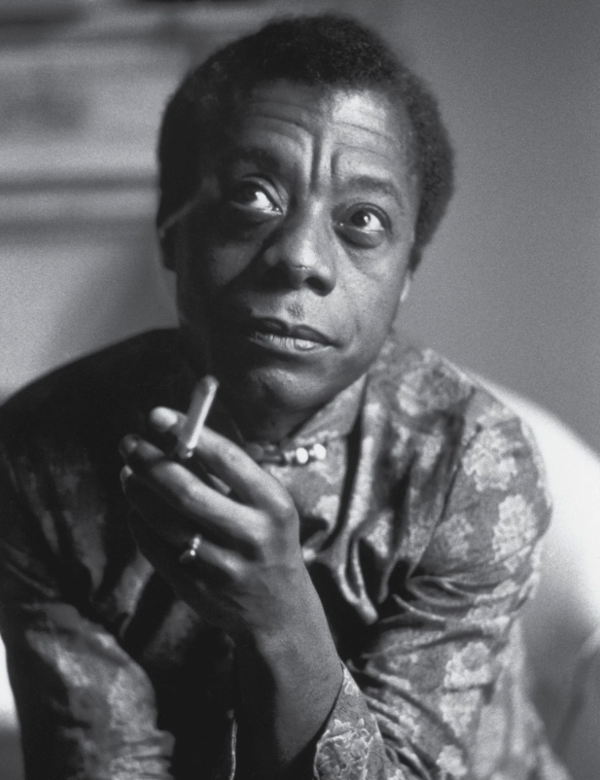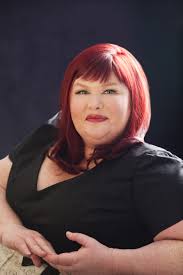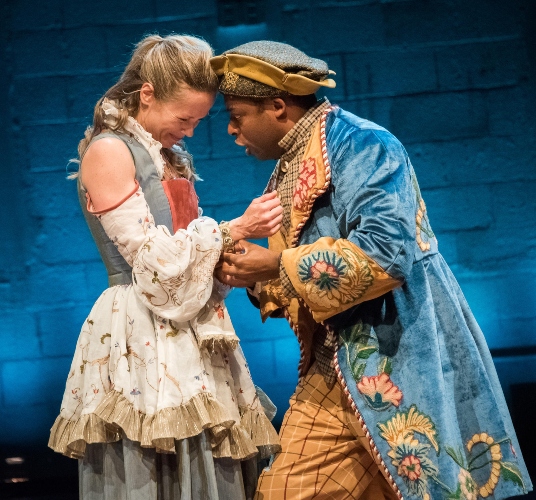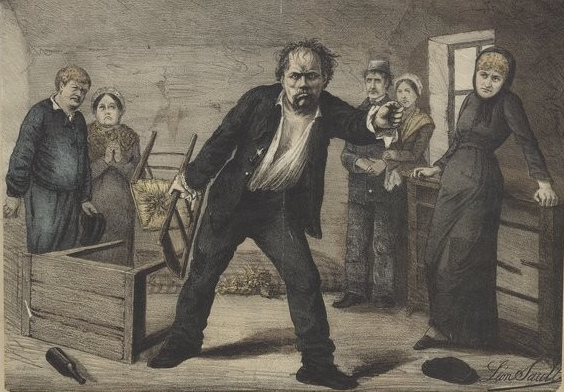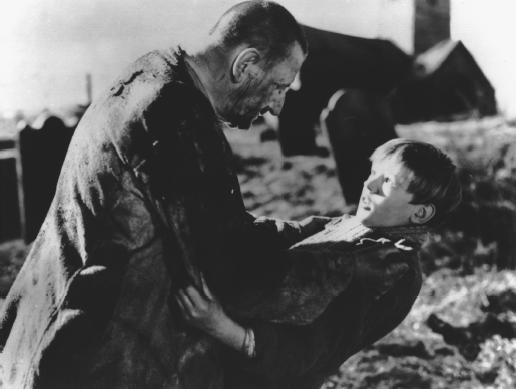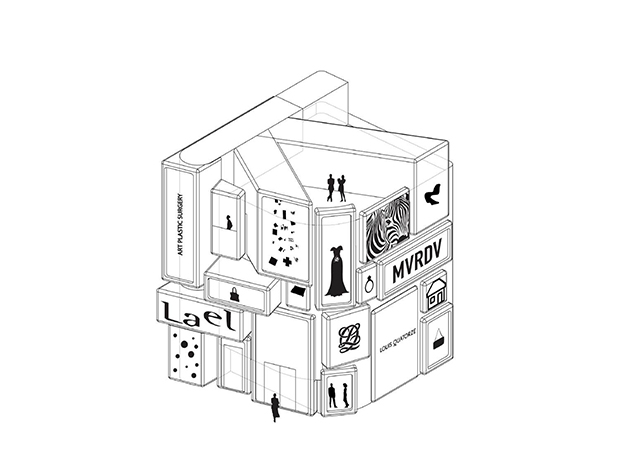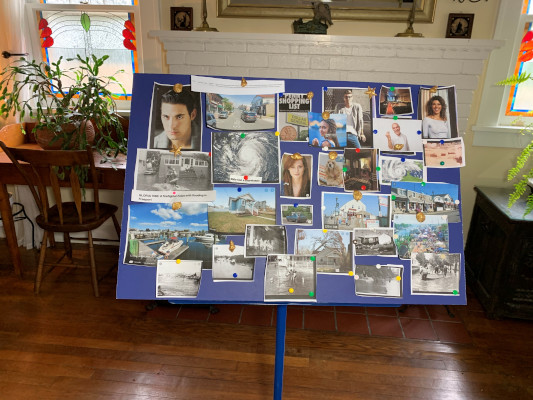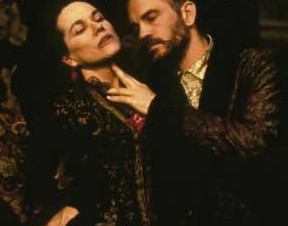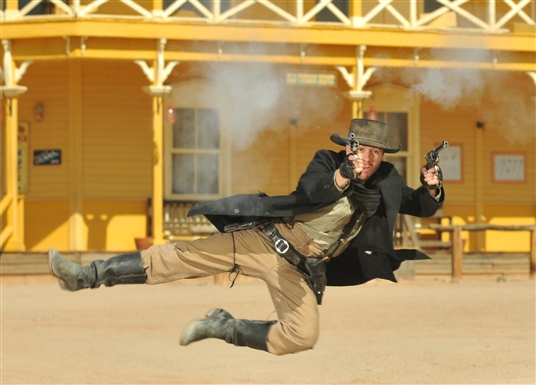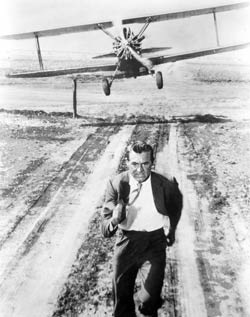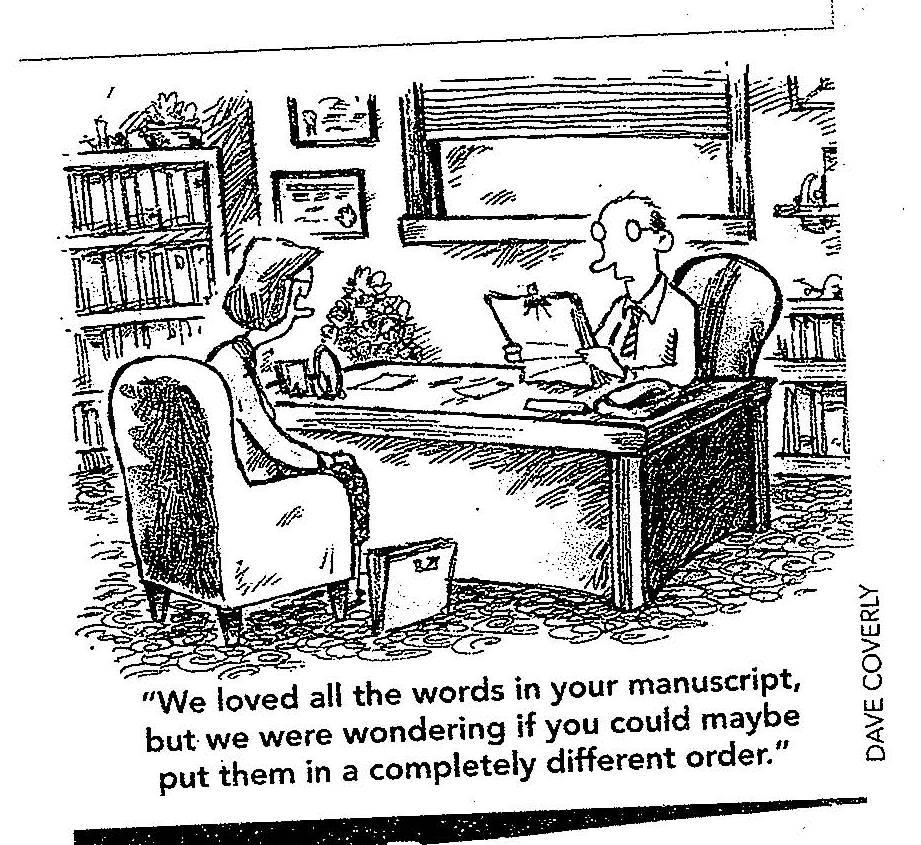Spring 2021
Novel Writing Workshop -- WRIT1-CE9357
FEB 24 - APR 28, 2021 -- WEDNESDAYS
6:30 p.m. to 8:50 p.m. (Note change of time!)
Meredith Sue Willis Home Syllabus
Various NYU policies Individual Presentation Dates for Critiquing
Check this site frequently for changes in assignments, readings and other information
updated 4-29-21
Farewell, and best of luck on your novels!
This web page and materials will be available
through June 1, 2021.
New Stuff:
DIY/MFA??
Check it out!
Do you know these novelists?
See below for namesCurrent Week
Presentation Schedule
This web page changes often, so check for updates.
Technical note for Mac users from David Martin:
For Mac Users:
Save your work for sharing as a ".docx" file
To view screen share in Zoom at full screen, see the top drop down menu and set to "100%"
Optional text: Ten Strategies to Write Your Novel by Meredith Sue Willis.
The long story by James Joyce, "The Dead," avaiable in many places, including via this link to a .pdf.
Some things to read/do online
- Read James Joyce's long story, "The Dead." This is avaiable in many places, including via this link to a .pdf\
- Wriiting Tips: interesting, although I'm not sure I agree with all of them: From Andrew O'Hagan, Esquire editor-at-large and author of books including Mayflies, The Illuminations and Our Fathers.
- Look past your first idea
- Your first thought is never your best thought. It's just your first.
- Most of your ideas are banal. Dig deeper.
- Go and find things out. Make a fetish of research. Most of the things worth hearing aren't already sitting in your head.
- Stop bothering people with your early drafts. Bother yourself with your early drafts.
- Work every day. It's not an amateur's game.
- An article in Jane Friedman's blog about use of various types of third person in fiction.
- The Ultimate Fiction Writing Prompt
- Class member Suzanne Martinez's story about trying to live outside the city during the pandemic: "Quitters."
New at A Journal of Practical Writing: "Cultural Appropriation in Creative Writing."
A close reading of a well-made first paragraph (Emily Temple on True Grit)
Switch back time: two articles:
https://keepswimming.online/2020/01/21/switchback-time/ https://atnesoiac.wordpress.com/2010/09/18/the-art-of-time-in-fiction-part-2/
Highly recommended: Joan Silber's book, The Art of Time in Fiction (St. Paul: Graywolf, 2009).
Dolly Parton says in her book Songteller in reference to song writing, "I draw from everyrthing." A good thing for novelists to keep in mind too?
Look at this material on use of present tense: http://www.meredithsuewillis.com/materials.html#presenttense.
Do you need ideas for starting your novel? Check out MSW's article online from The Writer: "How to Get a Novel Started."
My current favorite opening line of a novel: "Frederick J. Frenger, Jr., a blithe psychopath from California, asked the flight attendant in first class for another glass of champagne and some writing materials."
Charles WIlleford, Miami BluesAnother good one: "Later, as he sat on his balcony eating the dog, Dr. Robert Laing reflected on the unusual events that had taken place within this huge apartment building during the previous three months...."
-J.G. Ballard's High Rise
by Zoom
2/24/2021 - 4/28/2021
6:30 p.m. to 8:50 p.m. (Note change of time!)
Instructor: Meredith Sue Willis
E-mail: MeredithSueWillis@gmail.com
Novel Writing SyllabusBusiness
-
This class welcomes beginning novelists, but is also aimed at writers who are well-underway on a novel and need further discussion and stimulation to continue or restart. We will cover a lot of basics fast, beginning with a survey of common terms for discussing novels and a look at novel structure in general. If you feel you need more of the basic terminology and ideas, please take a look at the teacher's book, Ten Strategies to Write Your Novel.
-
For those with longer or revised manuscripts, this course may be repeated.
-
This syllabus will be updated regularly online, so please check this web page at least once a week. Access to the website is also available from MSW's home page. Look at the top left.
-
All writing and presentation selections should be from the novel you're working on.
-
During the course, you may bring a total of up-to 50 manuscript pages for critique (some of these pages will be for the whole group, some only for the teacher). Assignments are optional and go only to MSW. Anything you turn in to MSW, however, including the presentation pieces and optional homework, counts towards the total of 50 pages to be reviewed during the semester.
-
Please be prepared to discuss the work of classmates when they present.
-
When you present to the whole class, get the piece to the at least 5 days before the class.
-
Presentation pieces go to the instructor and whole class. Homework assignments go only to the instructor.
-
You will receive a grade for this course unless you request a NonEvaluative mark. For the Non-Evaluative, please see the attached form. A copy of this request must be filed with the department. Send it by e-mail to lc9@nyu.edu.
-
No letter grade will be given below a B. To earn a B, you must complete 50 pages to the professor's satisfaction plus present work for critiquing by the class at least once. To earn an A, you must complete the 50 pages, present work for critiquing by the class at least twice, show evidence of having done any outside reading, plus participate fully in class discussions.
-
It should be noted that all NYU policies on academic integrity, i.e., plagiarism, are fully in effect in this course. For various NYU policies, click here.
-
Disclaimer: Syllabus is subject to change due to current events, guest speaker schedule changes, and/or level and interests of students.
-
Nonevaluative Grade Information: if you don't want a grade, you must follow these instructions.
Schedule of Classes
Current Week
Presentation/Critique Schedule
Session 1. 2-24-21
Class Structure, Concrete Language, & "The Dead"
Assignment Due: Be prepared to talk about what books you consider instructive for novel writers.
Reading Assignment: "The Dead." This famous long story from Joyce's Dubliners has perhaps more in common with novels that short stories.(Optional) In Ten Strategies to Write Your Novel, read "Strategy 1: Separate Process and Product" or this excerpt from the book :Click on the "Read an Excerpt" at this link link.
Some small things to think about:
Getting the right spacing between paragraphs in Word
A piece from The Guardian on adverbs
Look over conventional editorial marks.
Class Plan Session One: 2-24-21
I. Roll call
NYU Business
Other business:
Send by chat or email: your snail mail address; names you want to be called; corrections to e-mail, etc.
May I share e-mail list with other members of the class?
May we start at 6:30 and end at 8:50?
Structure of the course & more business. Things we'll do during class-time:
-
Readings for homework
-
Class members passages for presentation/critique
-
mini-lectures (MSW talks)
-
discussion (as much as possible)
-
in-class writing
Material you send in for responses:
There are three kinds:
1. The weekly assignments should be @ 2-3 pages long. They are not required, but are a good way to move your novel forward. These pages are sent only to MSW. They are due on the day of class (thus, the "Writing Assignments due" for Session 2 are due sometime on March 3, 2021). If they don't arrive that day, there is no guarantee they will be returned by the next session.
2. Substitutions: especially for people taking this class again, or who have an ongoing novel--you may send any pages you want to the instructor for feedback. These pages are sent only to MSW. They are due on the day of class (thus, substitute pages for Session 2 are due sometime on March 3, 2021. If they don't arrive that day, there is no guarantee they will be returned by the next session.
3. Presentation pieces for critiquing (as short as you'd like, but no more than 10 pp. double spaced, 1 inch margins, roughly comparable to 12 pt. New Times Roman Type face) are sent to the entire class. These presentation pieces are to to arrive in people's e-mail in boxes by Sunday night before the presentation at the very latest.
II. Class guidelines (Zooming with a large class!)
-- Please read materials and (especially) your classmates' work for presentation before the class.
-- Please have your camera turned on.
-- Put yourself on mute when you're not talking so we don't have to hear your puppy, your partner in the kitchen, etc. The mute button is at lower left of the Zoom screen.
-- Raise your physical hand if you want to speak
-- Speak one at a time--in practice, this means waiting for the instructor to call on you.
-- Try to be succinct.
-- Listen and respect each other's ideas. We are writing different kinds of novels, and if possible, try to make suggestions based on helping each other write the best novel of the type we are writing.
-- Use the chat function for procedural notes to the instructor ( you got a text from a classmate who can't get in; the name of a book you couldn't think of and wanted to share....)
-- Apologies in advance: I may have to interrupt/cut you off. We try for equal time for each person, and I also have an ambitious plan for what to cover.
III. What we read...
What do you read?
Why do you read?
Name one novel you consider exemplary--not necessarily your favorite, but good for learning. Please send as a chat to everyone.
IV. The Dead
General responses, thoughts and structure of the novel. Why is "The Dead" novel-like?
(description, all senses, nineteenth century qualities, mix of big and personal; music, snow.)
V. WRITE
Let's plunge in to the small details of writing. Everything is built with concrete observation and sense details. Common vocabulary--Process versus product, pacing, when to dramatize, when to elide. Essential importance of Point of View in all fiction. Scene and summary. What is Scene? Why is it important? The building block of novels. But at the heart is concrete details.
1. Everything is built with concrete observation and sense details.
Sensual Detail Early in "The Dead"
He stood on the mat, scraping the snow from his goloshes, while Lily led his wife to the foot of the stairs .... He continued scraping his feet vigorously while the three women went upstairs, laughing, to the ladies' dressing-room. A light fringe of snow lay like a cape on the shoulders of his overcoat and like toecaps on the toes of his goloshes; and, as the buttons of his overcoat slipped with a squeaking noise through the snow-stiffened frieze, a cold, fragrant air from out-of-doors escaped from crevices and folds.
Note sound and smell as well as visual.
2. All senses (not just sight) come into play in describing a person:
Description of Freddy Malins from "The Dead"
In fact right behind her Gabriel could be seen piloting Freddy Malins across the landing. The latter, a young man of about forty, was of Gabriel's size and build, with very round shoulders. His face was fleshy and pallid, touched with colour only at the thick hanging lobes of his ears and at the wide wings of his nose. He had coarse features, a blunt nose, a convex and receding brow, tumid and protruded lips. His heavy-lidded eyes and the disorder of his scanty hair made him look sleepy. He was laughing heartily in a high key at a story which he had been telling Gabriel on the stairs and at the same time rubbing the knuckles of his left fist backwards and forwards into his left eye.
Note color, sound, action.
3. WRITE an in-class of the first appearance of a character in your novel.
4. Share.
VI. Common Vocabulary
Process versus product, pacing, when to dramatize, when to elide.
See Terms we'll be using this semester.
VII. BREAK
VIII. SCHEDULE PRESENTATIONS FOR CRITIQUE.
IX. Write a Macro Exercise
Macro exercise about the novel you are planning/engaged in. Your novel--write about it, talk about it.
Do you know what point of view is "The Dead?"
What point of view is
your novel?
Answer these questions about your novel using this list of Types of Novels if you need it.
X. Homework and readings for next week
Writing assignments:
1. E-mail all class members with a one page summary or outline of the novel you will be working on this term.
2. An important dialogue in your novel--and the things in dialogue besides the words said. Make up a new one, if possible.
Reading Assignments:
Ten Strategies, (optional)"Strategy 5: Master Dialogue and Scene."
Material on dialogue at: Dialogue Tags ; Types of Discourse; and " Dialogue: The Spine of Fiction." (article by MSW about dialogue online).
Dialogue from "The Dead"--look more closely
Session 2. 3-3-21
Scene, Summary, and Dialogue
Class Plan Session Two
Class Starts at 6:30 p.m.
Some Notes:
For Mac users re: share screen in Zoom
Using "that" in clauses: I always think of "that" as formal and probably unnecessary, but there are definitely times when it is needed for clarity: The mayor announced June 1 the fund would be exhausted. Is the mayor making the announcement on June 1 or will the fund be exhausted on June 1?
In a lot of fiction writing, you can cut it--it's how people speak. It's never incorrect, but sometimes wordy (here's a page online that discusses it nicely: https://web.ku.edu/~edit/that.html).
I. Business
Reminders:
Class Starts at 6:30 p.m.
For Mac users re: share screen in Zoom
It's your choice to do the assignments or substitute, but everything should be from your novel. The total number of pages you may turn in for response from the instructor is 50 (that includes pieces presented to the whole group and homework for the instructor alone).
Reminder about what is due when:
1. The weekly assignments should be @ 2-3 pages long. They are not required, but are a good way to move your novel forward. These pages are sent only to MSW. They are due on the day of class.
2. Substitutions: you may always substitute pages from you novel of your choice.
3. Presentation pieces for critiquing are to to arrive in people's e-mail in boxes by Sunday night before the presentation at the very latest.Questions:
Who wants no grade?
A couple of people haven't signed up yet--get your second one too.
Snail mail addresses?
Writing Assignments due today:
1. E-mail all class members a one page summary or outline of the novel you will be working on this term.
2.E-mail only the instructor an important dialogue in your novel (1-3 pp.) --and the things in dialogue besides the words said.
Reading Assignments due
Here's some writing advice suggestions from past classes
Dialogue from "The Dead."
Material on dialogue at: Dialogue Tags ; Types of Discourse; and " Dialogue: The Spine of Fiction." (article by MSW about dialogue online).
Scene and summary. What is Scene? Why is it important? The building block of novels.
Reading Assignment Reading Assignment (optional): Ten Strategies, "Strategy 5: Master Dialogue and Scene."
INDIVIDUAL PRESENTATIONS BEGIN. (See Schedule below).
II. Re-introductionsI had a request for a go-round of introuctions: what to call each other, one thing we need to know about you.
May MSW share a print-screen for learning names and faces?
III. Further introductions: Some of what I learned from your summaries.
My overall response to your summaries (not due till tonight, but a lot sent them in).
Mostly well done– a lot of you seem to have training/experience in summarizing!
A few things I noted, that we'll be talking about– very general–
POV/How it's told
Time frame/span: some very clear. It's an important thing to work out: the present time of the story. That is, the farthest forward time as we tell it, irrespective of flashbacks, etc. Part of structure.
Do you know the time span of your story? "The Dead," for example just a matter of 5 or 6 hours with on essential back story told near the end.
IV. How do we evaluate fiction?
What kind of feedback do you find most useful? How do we evaluate fiction? What kind of feedback do you find most useful?
See "hand-out" for some questions.
Points for novel critiquing.pdf
You can use this to give to people, as a guide, or not at all. Just some suggestions.
A couple more points:
Separate line editing from conceptual editing
Offer any expertise you have?
Writer should ask for specific kinds of critique
Be prepared to talk, but try not to repeat.
write a holistic note;
use "comments" in Word
scan in and email.
Send by snail mail.
V. Presenter One: Michelle,
VI. Write
A moment in your novel when two characters are in opposition: a dialogue
Share?
BREAK
VII. Point of View
Essential importance of Point of View in all fiction.
Point of View chart
An article on various 3rd persons
Point of view samples
VIII. Presenter Two: Suzanne
IX. For next week:
Writing Assignment due: Write a monologue for a character. This can be internal on monologue or perhaps a speech made aloud. The point is a charactger studying or expressing the self.
Reading Assignment :
To learn techniques for writing inner dialogue, see The Editor's Blog on choices for writing "Inner dialogue." For a more concise version of this information, see Grammar Girl.
Reading Assignment (optional): Ten Strategies, "Strategym 3: Explore Character from the Insisde Out.
Possible In-Class discussions: The assignments today are
Class Plan Session Three
Session 3. 3-10-21
Class Starts at 6:30 p.m.
Character Development from the Inside:
Internal Monologue and more
Late Great Beat Poet Diane di Prima
Just for fun: Fifty-very-bad-book-covers-for-literary-classics/
Writing Assignment due: Write a monologue for a character. This can be internal on monologue or perhaps a speech made aloud. The point is a character studying or expressing the self.
Reading Assignment :
(holdover from last week) Material on dialogue at: Dialogue Tags ; Types of Discourse; and " Dialogue: The Spine of Fiction." (article by MSW about dialogue online).To learn techniques for writing inner dialogue, see The Editor's Blog on choices for writing "Inner dialogue." For a more concise version of this information, see Grammar Girl.
Reading Assignments (optional):
In Ten Strategies, read "Strategy 3: Explore Character from the Inside Out. "
Piece at Literary Hub called "How Do You Keep a Novel Alive When It Keeps Trying to Die?"
I. Discussion: What do I need from this course?
II. Business
Confusion about what teacher will read? 50 pp includes everything, so if you turn in 20 pages to class for critique, I'll read up t
30 pages more including home works.
You don't have to turn in 50 pp.
You may turn it in whenever you want. Home works are especially good for getting started.
The weekly assignments should be @ 2-3 pages long. They are not required, but are a good way to move your novel forward. These pages are sent only to MSW. They are due on the day of class.
Substitutions: you may always substitute pages from you novel of your choice.
Presentation pieces for critiquing are to arrive in people's e-mail in boxes by Sunday night before the presentation at the very latest.
Any changes in Presentation Schedule?
For Mac users re: share screen in Zoom. Any problems?
Notes after reading home works:
Conventional formatting and spacing in Word for pages– narrative paragraphing, not block paragraphs. See link...)
Grounding This is what makes the world of our plots and emotions real: easiest if readers know the world, of course, but don't assume too much. If the story is set in 1990, are there smart phones? Blackberries? For fantasy and science fiction, be very careful to build a world. Can you (in past, in fantasy world) even use imagery that stays in place? If story takes place in a semi-medieval world, would you say he looks like a Succubi character, as Michelle did last week in her contemporary, or close, novel?
III. Quick holdover from last week on dialogue and scene (mini-lecture)
We are really talking today about character development from the inside, but there is a lot to show about character and plot through dialogue and scene.
Scene and Dialogue
Dialogue from "The Dead."
Material on dialogue at: Dialogue Tags ; Types of Discourse; and " Dialogue: The Spine of Fiction." (article by MSW about dialogue online).
Scene and summary. What is Scene? Why is it important? The building block of novels. Some ways of telling a story– central one is scene. Please be sure and read the things online about scene, but in a nutshell, it's the unit of the novel–not the only thing, and some novels it isn't even the main thing, but always crucial for drama, for the reader visualizing the action.
IV. Write
A choice:
An archipelago of scenes in your novel–
List 3 to 7 or more of the main scenes in your book--especially if you haven't written them yet!. Just a sentence to remind you of what they are...
OR– as this is especially for those in the early stages of a book, and I apologize for repeats, I have an alternative if you've done this before: A freewrite on your novel.
V. Presenter One: Adrienne
BREAK
VI. Presenter Two: Julie
VII. Presenter Three: Rochelle
VIII. Homework for Next week
Writing Assignment due:
1. A note on what you need from t his class.
2. A scene from your novel with a lot of people in it-- a group scene. This might be a party; a battle; a bar; a church dinner; a class; a museum or stadium or other public space; or other. Use some of the people as part of the setting: colorful clothes? a mass of unfamiliar faces? Think about the point of view of this scene: is it being told by someone in the midst of it or from a great distance? Is it first seen in full, as a long shot? Or is it first seen up close, from one character's sense of being lost in the crowd? Or is the point of view from the speaker's platform, from the point of view of someone who is carrying out a subversive act?
One of the hardest things to do. Hints for how to do them well:
• strong point of view,
• keep readers oriented with main characters always in view
• use unnamed characters be scene dressing.
Reading Assignments Due:
Read these notes on Grounding and Read "Characteristics"-- some ideas for making a list of things about characters to help develop them. Notes on minor characters. Read this piece about Monologue and Minor Characters.
Presentation Schedule
Class Plan Session Four
Session 4. 3-17-21
Minor Characters and Group Scenes
Scene from Zola's L'Assommoir
Writing Assignment due: A scene from your novel with a lot of people in it-- a group scene. This might be a party; a battle; a bar; a church dinner; a class; a museum or stadium or other public space; or other. Use some of the people as part of the setting: colorful clothes? a mass of unfamiliar faces? Think about the point of view of this scene: is it being told by someone in the midst of it or from a great distance? Is it first seen in full, as a long shot? Or is it first seen up close, from one character's sense of being lost in the crowd? Or is the point of view from the speaker's platform, from the point of view of someone who is carrying out a subversive act?
Reading Assignments Due:
Read these notes on Grounding . Read "Characteristics"-- some ideas for making a list of things about characters to help develop themead: Read this piece about Monologue and Minor Characters.
Some Strategies for crowd scenes:
Finally, here are a couple of practical ways of dealing with logistics and large groups. I probably shouldn't talk about tricks-- all prose narrative, after all, is an illusion of reality-- but as you revise, you can try these things to make the story telling run more smoothly.
Only identify two or three individuals in a scene. Say "The twenty two members of the Ridgewood Bobcats walked into the dressing room with long faces," and then give quoted speeches only to Rob, Andre, and the Coach. The other Bobcats can mutter as a group, or lower their heads in shame, but they remain a mass, part of the scene setting.
Only give proper names to the most important characters in a group scene. (As above. Be sure you really need the names. Proper names call attention to themselves.)
Clarify the logistics and physical action by giving a firm point of view. Imagine a fixed camera or a character in a chair in the northeast corner next to to the white board. Write only what is seen from that point of view. This will help keep the reader oriented. If that point of view or fixed camera angle is blocked by a pillar, don't tell what can't be seen. Even if you have a multiple viewpoint story, write your action from one point of view.
Conflate. If you are writing fiction based on you own large real family, for example, conflate two annoying little brothers into one. It strays from the facts, but allows the creation of one full character and eases your logistical problems.
I. WRITE
Put something green in your novel. Where does it take you? "I remember the green......" His eyes? the April hills? the mold on the sandwich bread?
II. Business
Any changes in Presentation Schedule? (Check it out-- we've lost a student)
I'm going over for homework to .doc comments
We will do a brief Marketing discussion (probably Session 9)
III. Mini-lectures and "Notes"
Next week more on Point of View, and then Physical Action and Logistics
A.
We talked lightly last week about strategies for writing crowd scenes.)
B.
I wanted to give a few notes also on minor characters:
First, don't be afraid of using characters as window dressing, especially if you don't name them: "The bar was filled with men in green drinking beer and singing 'Danny Boy.'"
But if you give names or lines of dialogue, try to give them more personality: One way to make minor characters more real and rich is make little character sketches or lists of concrete "Characteristics."
Another idea is to give them short speeches or monologues. See Monologue and Minor Characters
C.
After looking at papers for today
Doing more than one thing at a time
Use of foreign languages in a novel in English (Daniel's presentation)
The zig-zag of time (Alison's presentation)
IV. Presenter One: Alison
V. Presenter Two: Margaux
BREAK
VI. Short Structural Exercise
This is about the center, the most important part of your novel.
Pretend it is the 19th century, when illustrations are common in novels--lovely line drawings.
Describe the frontispiece for your novel, which is a drawing usually, of an important moment or crisis in your novel.
Thackery's illustration of Becky Sharpe
VII. For next week:
Writing Assignment due: Write an action scene in which you pay close attention to having a strong point of view. If you are writing in first person, the challenge is to make the action seem realistic. If you are writing in omniscient, you need to find a way to make the action vivid and not too distant.
Reading Assignments:
Point of view: Opening of Great Expectations
Point of View problems: Read Point of View Problems sheet
Point of View done wrong: "The Kilted Warrior."
Reading Assignments (optional): Strategy 4 from Ten Strategies: "Find Where You Stand: Point of View" (p. 32)
VIII. Structural Exercise: Describe a frontispiece for your novel.
IX. Presenter Three : Daniel
Presentation Schedule
Class Plan Session Five
Session 5. 3-24-21
Point of View and Point of View Problems
Writing Assignment due: Write an action scene in which you pay close attention to having a strong point of view. If you are writing in first person, the challenge is to make the action seem realistic. If you are writing in omniscient, you need to find a way to make the action vivid and not too distant.
Reading Assignments:
-- Point of view: Opening of Great Expectations
-- Point of View problems: Read Point of View Problems sheet
-- Point of View done wrong: "The Kilted Warrior."
Reading Assignment (optional but highly recommended): Strategy 4 from Ten Strategies: "Find Where You Stand: Point of View" (Especially p. 32 to p. 46.)
I. Business
• I'll be putting up a short Survey Monkey questionnaire asking you for an evaluation and suggestions for the second half of the course. I'll e-mail details.
• Again, be sure you check the Presentation Schedule.
• A request from a couple of people on structure, so I'm doing the outline/ structure lesson next week.
• Anything else pending? Questions about procedures? We're at the halfway point.
II. A few more notes on point of view–the good bad and the ugly:
Highly recommended: Strategy 4 from Ten Strategies: "Find Where You Stand: Point of View" (Especially p. 32 to p. 46.)
Point of view: Opening of Great Expectations
Point of View problems: Read Point of View Problems sheet
Point of View done wrong: "The Kilted Warrior."
Illusion of how the story is told
III. Discussion on How the Novel's Going
What's going well?
What are your "challenges?"
IV. Presenter One: Anna
Break
V. Presenter Two: Marc
VI. Write
An important moment for a character in your fiction: Have the character feel it in the body. Perhaps the person has been hurt or sick and is just coming to consciousness, sensing all the body parts, what's not broken, what aches.
Or has felt a strong emotion expressed in physical characteristics, not just "I felt sick to my stomach," but "My stomach clenched and rolled and the fried onion rings were trying to rise up my throat..."
Or, the first time the character runs a mile or reaches some athletic milestone: heart-thumping, head light, sweat pouring, but euphoric.
Make it very detailed, over-writing, to be cut later– meanwhile going where it takes you next.
VII. Homework for next week
Writing Assignment: Two versions of an outline of your novel.
I. 1. A simple chronology: earliest events, next, next, etc. You may actually use dates (May 1, 1905, October 15, 1935....)or
2. Day One; Day Two; Day Three or
3. January 2020; July 2020; January 2021 or
4. Some other chronological plan.
II. Then write an outline of how you might tell it, putting parts in flashback or as a told memory from an elder. You can do this in anyway you want it, including as something visual. See the sample outlines here.
Reading Assignment :
Stakes Method of Outlining
When to Outline.
Summary of how you structure Multi-plot novels.
Look at this macro exercise of thinking about your novel. Print it out if you want to, or just take notes, or just think about it: a page on the structure of your novel.
Reading Assignment (optional)
In Ten Strategies, read "Strategy 6: Structure Your Novel." Check especially starting at page 96 "The Best Time to Start Outlining."
Presentation Schedule
Class Plan Session Six
Session 6. 3-31-21
Structuring Your Novel:
Outlining as a Way to Think About Your Novel
Writing Assignment: Two versions of an outline of your novel.
I. 1. A simple chronology: earliest events, next, next, etc. You may actually use dates (May 1, 1905, October 15, 1935....) or
2. Day One; Day Two; Day Three or
3. January 2020; July 2020; January 2021 or
4. Some other chronological plan.
II. Then write an outline of how you might tell it, putting parts in flashback or as a told memory from an elder. You can do this in anyway you want it, including as something visual. See the sample outlines here.
Reading Assignment :
Stakes Method of Outlining
When to Outline.
Summary of how you structure Multi-plot novels.
Look at this macro exercise of thinking about your novel. Print it out if you want to, or just take notes, or just think about it: a page on the structure of your novel.
Reading Assignment (optional)
In Ten Strategies, read "Strategy 6: Structure Your Novel." Check especially starting at page 96 "The Best Time to Start Outlining."
I. Business
Thanks to those who responded to the homemade Survey Monkey. Not too late! I am collecting questions for the marketing discussion, and will respond a little more next week.
Feedback on your work. Any general requests or suggestions, including to me? E-mail me with other complaints.
Changes to the Presentation Schedule?
When we have 4 presenters, it will be 20 - 25 minutes per.
[Last "Man" Standing?]
II. Mini-Lecture on Outlining:
Outlining: any questions, thoughts on the outlines
I am personally partial to three methods (but the main thing is, figure it out for yourself):
– the hypothetical method for creating a plot: you make up a hypothetical or test plot. Write down a beginning, middle, and end. Write as if that made-up plot were your plot, but be ready at any moment to change it. This gives you a structure to work with (especially an end point) but gives preference to changes that your imagination might come up with.
– The chronological outline
– The other thing I particularly like is the "running outline," which is a daily record of progress and changes. Here are some samples:
The "Penny Board"
Outline sample 1--a form for drafting
Outline sample 2--character diagram
Outline sample 3 a timeline outline
Outline sample 4--word drawing outline
Outline sample 5 --nonfiction book outline
Outline sample 6--running outline
Outline sample 7-- Penny Board
Note re: my sample outlines that one is a form that a writer created to help draft each chapter in the book. One is from my non-fiction book about writing a novel, which is fairly straightforward, based on teaching and workshops I've done, and much less of a struggle than my fiction outlines. . Another is from a science fiction novel of mine, and it's what I call a "running outline," that is, I update it at the end of a day's work--doing the page count, word count, date, and also making any changes (names, facts) that I came up with that day. One is a student "outline" that is really a diagram of characters that helped her in her thinking--and that's the main point of an outline: to help you visualize what you've done and to hypothesize about what you might do--and remember ideas for the future. You need to find your own best outlining method.
III. Presenter I:
Philip
IV. Presenter II:
Nick
V. WRITE: put an explosion toward the end of your novel.
VI. Break
VII. Presenter III:
Alison
VIII. Presenter IV:
Daniel
IX. Next week's assignments
Writing Assignment due: Do one or both of these:
-- A small bit of a scene from your novel in which physical gesture is important: Hands, feet (small motor coordination, as it were).
-- A scene with a Big action and Logistics
-- Don't forget, substitute pages of your own choice for homework,and homework should total 2-3 pages. Also remember to keep count of the total number of pages (up to 50) that MSW is getting from your for critique.
Short Reading Assignments:
The Material below in this Class Plan
Sample of old Grandma who used to be poor
A Fist Fight from an old Louis L'Amour Novel
More reading (optional) : Strategy 9 in Ten Strategies to Write Your Novel: "Mastering Logistics."
Presentation Schedule
Class Plan Session Seven
Session 7: 4-7-21
Logistics and Physical Action
Movie images of physical action large and small: Portrait of a Lady; random cowboy movie; North by Northwest
Writing Assignment due today: Do one or both of these:
-- A small bit of a scene from your novel in which physical gesture is important: Hands, feet (small motor coordination, as it were).
-- A scene with a Big action and Logistics
-- Don't forget, substitute pages of your own choice for homework,and homework should totalt 2-3 pages. Also remember to keep count of the total number of pages (up to 50) that MSW is getting from your for critique.
Short Reading Assignments:
The Material below in this Class Plan
Sample of old Grandma who used to be poor
A Fist Fight from an old Louis L'Amour Novel
More reading (optional) : Strategy 9 in Ten Strategies to Write Your Novel: "Mastering Logistics."
I. Business
– NYU SPS plans to be online for the foreseeable future.
For more information, get in touch with Academic Director the Center for Applied Liberal Arts Noncredit Programs Jenny McPhee ( jm279@nyu.edu); and/or Director of Writing Programs Abby Mack (abby.mack@nyu.edu).
– Other business? Adrienne can't attend, won't be doing presentations
– A little more on the evaluations: marketing session will be short, following your questions, directing you to materials (look at my resources.html page now, if you want).
II. Some Odds and ends, which doesn't mean they're not important:
MSW Pet Peeves: Smirk-- Smile in an irritatingly smug, conceited, silly or evil way. Draco Malfoy smirks at Harry Potter. One watt short of a sneer.
Tense and Flashback
All of these rules and suggestions are often broken and played with.
In the conventional story teller past, when you do a flashback, you begin in the past perfect tense (He had always gone to the Golden Dolphin after work...) and then after a couple of lines, you slip into the plain past again. This is an accepted convention of fiction writing, and it makes for vigorous story telling (He had always gone to the Golden Dolphin after work, but that day he went straight home...).
It gets tougher when you are in the present tense. The present tense is intrinsically inimical to the past: we usually write in present to keep the focus here and now. I'm not a huge fan, but more and more novelists prefer it.
Rule of thumb: if your story is in the present tense, once you've switched to the past, stay there.
But if you are writing in the past, start a flashback in past perfect and then slip back into the plain past
More Notes on Tense
1. Advantages of the Present Tense
--Immediacy- especially how it can convey change as it happens in the first person. Extends realism in the realm of time: durational realism (like old TV show "24")
--"Defamiliarization" by giving a sense of intensity and originality- less original now, of course, as many people use it.
-- Very effective in conveying disordered and disoriented mental states: dream, insanity, etc.
-- Especially valuable when it reflects a work's themes: e.g., a character who is "boxed in the present" or trying to repress the past or unable to remember the past.
2. Disadvantages
-Restricts ability to manipulate time: hard to maintain and compress time, hard to do flash forwards, flashbacks- they can destroy the illusion of presentness.
-- Harder to create characters for whom the past is important.
-- Harder to create suspense, because present tense narrators don't know what's coming.
-- Takes the story out of time. It can begin to sound like the generalized present or historical present as in, "I write in the morning" and "Shakespeare is making the point that..."
-- Tends to limit variety in narration.
-- Tends toward minimalism, and thus has less room for description.
-- Leads to including trivial things because they are realistic and "present."
-- Can feel impersonal and detached.
-- It is tricky to narrate something like a murder or rape or fight. Seems always aimed at an audience like calling a game play-by-play: "And now he's at the twenty yard line, and now..."
Some of these can be advantages, and vice versa.
III: Presenter I:
David
IV. Presenter II:
Jessica
V. Break
VI. Write: The Last "Man" Left Standing exercise.VII. Gesture and Physical Action
Writers who are naturals at dialogue and brilliant at structure and metaphor often have difficulties when their characters need to make a sandwich or kiss their lovers or strike out in a softball game. People write physical action in many ways, but the default is to describe it cleanly and smoothly, so that a reader can visualize what's happening and not have to get into trying to figure out whose fists smashed whose nose.
It is not as easy as it seems.
Here are some small gestures: Madame Merle & Geoffrey Clay father
Here's another example that is plain and brief and cinematic in its small way. It was, in fact, transferred almost gesture by gesture to film.
The Don, still sitting at Hagen’s desk, inclined his body toward the undertaker. Bonasera hesitated then bent down and put his lips so close to the Don’s hairy ear that they touched. Don Corleone listened like a priest in the confessional, gazing away into the distance, passive, remote. They stayed for a long moment until Bonasera finished whispering and straightened to his full height. The Don looked gravely at Bonasera. Bonasera, his face flushed, returned his gaze unflinchingly.
-- Mario Puzo, The Godfather, p. 30
Love that detail of the hairy ear.
In general, physical action-- whether making tortillas or running for a bus or slashing with a knife, whether about making love or committing a murder-- works best when it is simple and sharp. The fewer words the better. Obviously this is a rule that has been broken often and to good effect, but start by trying to transfer what you see in your mind simply and clearly to the reader's mind.
One excellent technique to help you do this is to close your eyes and actually visualize a movie or TV screen. Watch your characters do their actions on the screen, and then write what you saw. Keep in mind that once again we are talking about revision, not drafting: I don't care how bad your description of action is in your first draft. Get it down first, then make it better.
Here are two passages of action. The first one is a classic not-so-artistic passage of action from an old cowboy novel. It feels long and loose now, but Louis L'Amour was extremely popular in the last century
The second one is rather poetic, but also very easy to visualize. It also is about the narrator's experience, and and her feelings about dance and her dance teacher.
A Fist Fight from an old Louis L'Amour Novel
He Goes She Goes
VIII. Presenter III:Linda, Jessica, David
IX.
X. Homework for Next Week
Coming weeks will touch on Revision (up close–dialect, dialogue, pacing, etc.); Marketing; and Revision (big picture: how do you "finish"/revise a novel. The last one is more about structure, which we began with outlining).
For next week:
-- Writing Assignment due: A scene or dialogue which highlights two very different characters or characters of very different personality or background.
-- Reading Assignment: Dialogue in Two Languages; Dialect Samples; Order of Sentences; Grounding.
-- Reading Assignment (optional) : Reading Assignment (optional): Ten Strategies, "Strategy 10: Revise Your World."
Presentation Schedule
Session 8. 4-14-21
Revision One
Writing Assignment due: A scene or dialogue which highlights two very different characters or characters of very different personality or background. Thus, a scene about
Reading Assignment: Order of Sentences; Grounding; Dialogue in Two Languages; Dialect Samples.
Reading Assignment (optional) : Reading Assignment (optional): Ten Strategies, "Strategy 10: Revise Your World."
I. Business
– Please count your pages: everything you send me counts.
– Are the scanned home works working out? I may snail mail some things back
– Next week: marketing session will be short, following your questions, directing you to materials (look at my resources.html page ).
– Please e-mail me if you are NOT taking a grade for this class.
– Any other business on anyone's mind?
II. Leftover from Last Week: Logistics
I say in my comments: "Good action, but I lost Karen...."
Action writing is the close-up, with details of the human body in motion. Logistics is about movement too, but it is the movement of large groups of people or things, or about people moving through space. Like
group scenes, the multiplicity of moving parts makes this difficult to get right.
Read these short passages, examples of logistics and crowd control.
The first one is a newspaper account from the 1930's that attempts to describe something that was new at the time: air attacks on civilians. It is about an event that Picasso made famous in his monumental painting Guernica.
The second one is two versions of someone coming into a bar. One is written to give the layout of the room in a more-or-less cinematic way. The character scans the place and gives us a sense of what is going on, who is standing where. The second version has a vertiginous effect. Things are seen out of order. It is a point of view that shows the character is under stress or possibly drunk or drugged.
The final passage is from one of my novels, Oradell at Sea. I was attempting to do a little of all that: make the big picture of what is happening clear, but also limit what we see to what the main character sees. It's set in the dining room of a cruise ship. (Is anyone every going to go on a cruise again??).
III. Presenter I:
Margaux
IV. Write
Put a head covering into your novel (hat, baseball cap, hijab, battle helmet) into your novel. Focus on what the head covering looks like, texture, temperature even odor? Does it bring up a memory? Is it part of the plot? Does it change what happens?
V. Presenter II:
Michelle
VI. Break
VII. Close-up Revision
A. Revising novels is both about surveying the big picture and about focusing on the tiniest details: Above all, get rid of extra words:
-- Some samples of tightening and cutting
Take a look at the sample below from a novella of mine.
First there was tightening-- what I think of as soft sentences getting more wiry, tougher. But I also made
changes during revision about what information is conveyed: information about the school, and the vice-principal. The original version has two women teachers talking naturalistically, but doesn't go very far with the story or deep with the characters. The same information, given via the narrator and the vice-principal has more underlying tension, maybe more about the culture of the school.
I discovered this as I was writing a second (maybe third) draft. I get tremendous pleasure in seeing the story come into view like this, like an old fashioned developer bath for photos.
Another way I think of this is as sculpture: I get that elephant's general bulk hacked out, then the details that come into view.
B. Revision is also--once you've got a draft out there-- about looking for things like
-- Consistency in a character's appearance AND behavior. What have I revealed?
Best technique: do a search for "Karen" and check all her details through the whole manuscript.
-- You can do this with action, too, or the appearances of certain places (do a add a new detail with each appearance).
-- Grounding
-- And, in dialogue--one of my special interests: Use and Misuse of Dialect, Accents, & Foreign Languages--
Dialogue in Two Languages
Dialect Samples.
What is the best way for a writer to show that a character speaks a particular dialect or with a particular accent? This is tricky, because there are serious pitfalls, namely readability, accuracy, and respect. As wonderful as Mark Twain's The Adventures of Huckleberry Finn is, there are passages that are very wearying if not unreadable because of the thick transcription of dialect:
"I got hurt a little, en couldn't swim fas', so I wuz a considable ways behine you towards de las'; when you landed I reck'ned I could ketch up wid you on de lan' 'dout havin' to shout at you, but when I see dat house I begin to go slow. I 'uz off too fur to hear what dey say to you- I wuz 'fraid o' de dogs; but when it 'uz all quiet agin I knowed you's in de house, so I struck out for de woods to wait for day..."
This is slow, painful going at best, and I'm not sure it's even truly accurate.
The fact is that, since narrative is always an approximation of speech, we are probably better off hinting at accents and dialects. We can never truly transcribe the exact sound of language.
Variations in word order and vocabulary tend to be richer than attempts at transcribing
pronunciation exactly. Occasional touches of non-standard grammar or a hint of pronunciation also go a long way toward creating the illusion of how a speaker speaks. Look at the opening of Denise Giardina's Storming Heaven (Denise Giardina left) which hints at an Appalachian dialect:
They is many a way to mark a baby while it is still yet in the womb. A fright to its mother will render it nervous and fretful after it is birthed. If a copperhead strikes, a fiery red snake will be stamped on the baby's face or back. And a portentous event will violate a womans entrails, grab a youngun by the ankle and wrench a life out of joint.
The written word is always an approximation, a created thing; the writer's job is to create a functional illusion. This uses certain Appalachianisms ("They is," "youngun") but makes no attempt to transcribe pronunciation. "Youngun" is treated not as standard English missing an apostrophe but rather as an Appalachian word.
Consider also what it means when you transcribe one character's dialect but not another's. For example, some writers use "in'" for "ing" in every word a character of Appalachian or Southern or African-American background says. In fact, very few if any dialects of English (and we all speak a dialect, even if it is Standard English) pronounce the full "ing." Jim's speech above in Huckleberry Finn, has "de" for "the," and again, this is a pronunciation toward which almost all English speakers tend, especially when they speed up their speech.
In writing dialogue in fiction, if you try to show every little variation from standard pronunciation for some speakers but not for every speaker, you are probably revealing what is at best at attitude of condescension.
Similarly, if you have passages where characters are speaking a foreign language, I like best to say it, in narration: "When they brought him in, his mother began to shout in Spanish." Then simply give the English, perhaps tossing a word or two of Spanish for flavor: "When they brought him in, his mother began to shout in Spanish. '¡Dios mío!' she cried. 'He's bleeding!'" This is not a perfect solution, and it is certainly not a rule, but if your objective is to move your story along with hints of spoken language, the one thing you don't want is to bring a reader to a full stop trying to figure out what language is being spoken or, worse, sounding out the words to figure out what they represent. Or going to a Spanish-English dictionary to figure out what the people are saying.
For more on these issues, here are some notes on using foreign languages in your novel and an article from Writers Digest that gives another point of view on writing dialect (that I don't totally agree with.)
VIII. Presenter III:
Rochelle
IX. For Next week:
Writing Assignment due:
1. E-mail ASAP questions for marketing discussion
2. Try these marketing/structural exercises
-- 25 word "elevator pitch" describing your novel
-- Your novel as a fairy tale: "Once upon a time in an alternate universe, the United States made a pact with the Third Reich...." "
3. Or, bring any selection of pages you want feedback on.
More reading:
Check out MSW's piece about cultural appropriation in fiction (a revision issue)
Take a a look at this article about a former NYU novel class student who has done so well with self- publishing. You'll notice she puts a lot of resources into the process-- her own money and time among other things.
Also, take a look at the publication this appears in, Poets & Writers. It is aimed in a literary direction, lots of articles plus lists of places to submit work, summer conferences, MFA Programs and more.
Presentation Schedule
Session 9. 4-21- 21
Marketing
Writing Assignment due:
1. E-mail ASAP questions for marketing discussion
2. Try these marketing/structural exercises
-- 25 word "elevator pitch" describing your novel
-- Your novel as a fairy tale: "Once upon a time in an alternate universe, the United States made a pact with the Third Reich...." "
3. Or, bring any selection of pages you want feedback on.More reading: Link to a new article about the former NYU novel class student who has done so well with self- publishing. You'll notice she puts a lot of resources into the process-- her own money and time among other things.
Also, take a look at the publication this appears in, Poets & Writers. It is aimed in a literary direction, lots of articles plus lists of places to submit work, summer conferences, MFA Programs and more.
I. Write:
Four minute Writing Exercise : Put a moment of loneliness in your novel.. Character can be alone or in a crowd, maybe thinks directly about being alone--or is aware of physical danger in being alone.
II. Business:
– Please get anything that needs responses from me no later than the final class, Wednesday, April 28, 2021.
– Any other business on anyone's mind?
III. Presenter I:
Jessica Carei, David Martin, Suzanne Martinez, Nick Isaacs
IV. Presenter II:
Jessica Carei, David Martin, Suzanne Martinez, Nick Isaacs
V. Marketing/Next Steps
A. You're going to have to do some research.
Draft Notes on Getting Published
For an excellent outline on the basics of getting published, look at Jane Friedman's page. You may also subscribe to her blog.
Best general resources on places to submit, lists of writing programs and conferences and much, much more: NewPages.com.
MSW's Resources for Writers has a lot of odds 'n ends.
Especially for literary writing, at Poets & Writers.
Notes on various types of publishing at Publishing Types and Print on Demand.
How long should a novel be? See notes on my Resources for Writers page.
A one-pager, somewhat out-of-date, of resources about getting published
See blog post by Veronica Sicoe on why she self-publishes and
A Wall Street Journal article about Marlen Bodden, a former student in one of my novel classes who first self-published-- and then had her book picked up by a commercial press. Note: self-publishing should never be you first choice, but it should be on your list of possibilities.
Another good resource: An online magazine called AuthorsPublish at https://authorspublish.com/ . Here's their free guide to traditional-style publishers who don't require agents.
B. Here are some things to do as you get closer to being ready to market your novel
First, get the manuscript in pristine condition--editors don't have to have patience for mess and mistakes. The competition's too great.
Experiment with submitting to online journals, magazines, & contests--short stories or novel-parts, or sections of your novel that can be edited to stand alone. This can be useful when you try to get an agent or editor, evidence that someone else appreciated your work. There are infinite possibilities on the Internet and also look at NewPages.com.
Do your research Read Jeff Herman's Guide to Agents. Read old standards like Writer's Market and The Writer and Writer's Digest and get on Jane Friedman's free newsletter list. There's lots more.
Lots of good stuff, oriented toward literary writing, at Poets & Writers.
On Facebook, search for "Calls for submissions (poetry, fiction, art.)" Sign up to get notices.
Try to go to at least one conference to make connections and learn more.
C. A Few Specific Questions:
How do you find an agent? Check out Poets & Writers magazine and various other resources listed here. Go to a conference and meet agents. Read Jeff Herman's many-times-updated Guide to Agents.
How do you get an agent without street cred? It seems like you need to be published before pitching agents! Research, attend a conference, even a one-day one. Made a schedule and start submitting.
What should you say in your cover letter? Keep it to one page; don't be cute; list any publications, honors, awards, areas of special expertise. Query Letter Samples
When is a good time to start When you actually have a full novel manuscript ready to show.
Should I use a general editor before submitting?Better to edit you own if you can (more opportunity to make changes), but some people swear by editors.
How to develop proposals for publishers? More for non-fiction than novels.
How do you copyright your novel to prevent someone from stealing the ideas and content?
What is the right number of agents to query at one time? They take so long, and not all of them even reply. Is there any reason not to send to a hundred in one gulp?
Would self-publishing be an option rather than go through all the rejections unknown writers are likely to receive?
If you do get published, what rights should you negotiate?
Some sources suggest no major publisher will look at manuscript that is not supported by an agent? Is that true?
In the notes about one agent, she wrote please, please not to send her stories about "white dudes on quests." That covers a lot of ground. I am all for diversity but still hope to be published. Any advice on how to negotiate this variable?
VI. Break
VII. Presenter III:Jessica Carei, David Martin, Suzanne Martinez, Nick Isaacs
VIII. Presenter IV:
Jessica Carei, David Martin, Suzanne Martinez, Nick Isaacs
IX. Next week's assignments:
Writing Assignment due : Assignment: A revision based on comments in this class. Include original for comparison OR a revised version of one of the inc-class exercises.
Reading Assignments due: Read this on Story, Plot, and Character: Dennis Lehane appreciates Elmore Leonard
How some contemporary writers revise (from Lit Hub).
MSW's article Seven Layers to Revising Your Novel ( from The Writer (November/December 2012, Vol. 125, Issue 11).
Reading Assignment (optional): Ten Strategies, "Strategy 10: Revise Your World."
(Also Optional) Another approach to planning and structuring: a short version of the Hero's Journey.
Presentation Schedule
Session 10. 4-28-21
Revision Two: Special Issues in Revising Novels
MORE MARKETING!!
Another good marketing resource: An online magazine called AuthorsPublish at https://authorspublish.com/ . Here's their free guide to traditional-style publishers who don't require agents.
Writing Assignment due: Assignment: a revision based on comments in this class. Include original for comparison.
Reading Assignments due:
Read this on Story, Plot, and Character: Dennis Lehane appreciates Elmore Leonard
How some contemporary writers revise (from Lit Hub).
MSW's article Seven Layers to Revising Your Novel ( from The Writer, Vol. 125, Issue 11).
Reading Assignment (optional): 1, Ten Strategies, "Strategy 10: Revise Your World;" 2. Another approach to planning and structuring: a short version of the Hero's Journey.
I. Business:
– NYU evaluations close at midnight
– Thank you to everyone who send me the four question evaluations: still coming in, very thoughtful, about the class and your own use of it.
– Please get in anything that needs responses from me no later than midnight tonight, Wednesday, April 28, 2021.
– I'll leave the class page online for at least a month if anyone wants to use materials or copy them.
II. Discussion (part 1):
How's it going? How do you plan to keep up your interest? To Pace Yourself?
III. Presenter I:
Philip Ai, Linda Atlas, Julie Stachowiak, Anna Tyor
IV. Presenter II:
Philip Ai, Linda Atlas, Julie Stachowiak, Anna Tyor
V. A (very) little on Large Scale and Structural revision
Good materials in the readings for today. Also, an interesting alternative to thinking about the structure of your novel is the Hero's Journey.
I want to call specific attention to a couple of things in my article Seven Layers to Revising Your Novel ( from The Writer Vol. 125, Issue 11).
VI. Break
VII. Presenter III:
Philip Ai, Linda Atlas, Julie Stachowiak, Anna Tyor
VIII. Presenter IV:
Philip Ai, Linda Atlas, Julie Stachowiak, Anna Tyor
IX. Discussion (part 2)
How's it going? How do you plan to keep up your interest? To Pace Yourself?
X. WRITEWhat will be the state of your novel on October 28, 2021 (six months from now)?
XI. Farewells!
Presentation Schedule
Denise Giardina; James Baldwin; "Cassandra Clare"; James Joyce
All assignments should be PART OF YOUR NOVEL. You may substitute any short section for the assignments, keeping in mind that the total submitted to MSW may not be more than 50 pages..
Iimages are stock photos or borrowed.
List of Presenters
If you are presenting, please get the piece to the class by midnight on the Sunday before your presentation.
Session 2. 3-3-21
1. Suzanne Martinez (1)
2. Michelle Vidal (1)
Session 3. 3-10-21
1. Rochelle Fisher (1)
2. Adrienne Lawston (1)
3. Julie Stachowiak (1)
Session 4. 3-17-2
1. Margaux Trexler (1)
2. Alison Hubbard (1)
3. Daniel Kleifgen (1)
Session 5. 3-24-21
1 Anna Tyor (short) (1)
2. Marc Rappaport (1)
Session 6. 3-31-21
1. Daniel Kleifgen (2)
2. Alison Hubbard (2)
3. Philip Ai (1)
4. Nick Isaacs (1)
Session 7. 4-7-21
1. David Martin (1)
2. Linda Atlas (1)
3. Jessica Carei (1)
Session 8. 4-14-21
1. Rochelle Fisher (2)
2. Michelle Vidal (2)
3. Margaux Trexler (2)
Session 9. 4-21-21
1. Jessica Carei (2)
2. David Martin (2)
3. Suzanne (2)
4. Nick Isaacs (2)
Session 10. 4- 28-21
1. Anna Tyor (2)
2. Philip Ai (2)
3. Linda Atlas (2)
4. Julie Stachowiak (2)
Various NYU Policies
Course Description: Beginning with a discussion of the basic elements and structure of novels, the class will include instruction and exercises for those just getting started, as well as a serious exploration of how to organize novels and other long prose narratives for those writers with projects already underway. Writing exercises will cover shaping, establishing tone, exploring character, tightening and enriching dialogue, and working with interior monologue. Topics for discussion will include sustaining interest for the writer as well as the reader, making a place in your life for your novel, and highlighting what novels do that film can't. We will look closely at up to 50 pages of manuscript from each participant. This syllabus will be updated regularly online, so please check this website at least once a week at http://meredithsuewillis.com/nyunovelwriting%20spring%202018.html
Course Prerequisites: Interest in novel writing.
Course Structure/Method: This in-person class uses short homework assignments, in-class writings, class discussion and regular critique. Please check the class website (http://meredithsuewillis.com/nyunovelwriting%20spring%202018.html ) at least weekly for changes.
Course Learning Outcomes: By the end of this course, students will have lengthened their novels and gained insight into how to continue and deepen their fiction.
Communication Policy: Communicate with the teacher via her e-mail: meredithsuewillis@gmail.com. She tries to get back promptly, but is a working writer with family and civic responsibilities.
Course Expectations: Homeworks are due as described on syllabus, but subject to change and substitutions are allowed. See website for updates. Attendance and class participation are expected.
Required and Recommended Material: There are three kinds of required readings: passages from the text Ten Strategies to Write Your Novel as detailed on the syllabus; any student samples for critique that are distributed; certain short readings online.
NYU Policies: NYUSPS Policies regarding the Family Educational Rights and Privacy Act (FERPA), Academic Integrity and Plagiarism, Students with Disabilities Statement, and Standards of Classroom Behavior among others can be found on the NYU Classes Academic Policies tab for all course sites as well as on the University and NYUSPS websites. Every student is responsible for reading, understanding, and complying with all of these policies. The full list of policies can be found at the web links below:
• University: http://www.nyu.edu/about/policies-guidelinescompliance.html
• NYUSPS: http://www.nyu.edu/about/policies-guidelinescompliance.html
School Grading Policies: Graduate, Undergraduate and Non-Degree grading scales are very different. Please provide the link to the grading policy appropriate for your course. The links are listed here.
NYUSPS Graduate http://sps.nyu.edu/academics/academic-policies-and-procedures/graduate-academicpolicies-and-procedures.html#Grades
NYUSPS Undergraduate http://sps.nyu.edu/academics/academic-policies-and-procedures/undergraduateacademic-policies-and-procedures.html#Grades_and_Grade_Point_Averages
NYUSPS Career Advancement (non-degree)http://sps.nyu.edu/content/scps/academics/noncredit-offerings/academic-noncreditpolicies-and-procedures.html NYUSPS Diploma (non-degree) http://sps.nyu.edu/academics/academic-policies-and-procedures/diploma-academicpolicies-and-procedures.html#Good_Academic_Standing
Assessment Strategy: This is an ungraded class for which grades are available if you want them, but the real assessment is through interactive critique of your work. You are expected to attend and participate. To earn a B, you must turn in fifty pages, attend 8 of 10 sessions, and present your work at least once as well as showing evidence of having read other students' work. To earn a B, you must turn in fifty pages, attend at least 9 of ten sessions, and present your work at least twice to the group as well as respond and show evidence of having read the other students' work.
Subscribe to Meredith Sue Willis's Free Newsletter
for Readers and Writers:
Please fill in your e-mail address
to receive Books For Readers NewsletterE-mail address: Subscribe Unsubscribe
Send mail
• What's On This Site • Information about MSW • Resources for Writers • Tips for Writers
• Samples of MSW's Writing • Articles for Writers • For Teens • News About MSW • For Kids
• For Teachers • Home • MSW's Books • Newsletter • Free Writing Exercises • Online Writing Classes
Home
